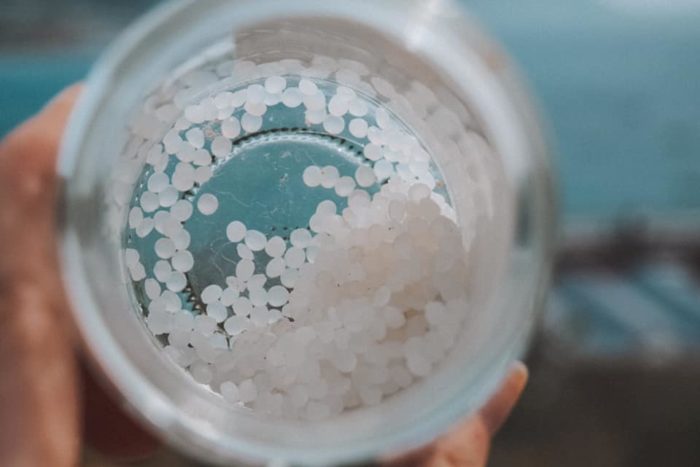#scuba Win a snorkeling trip for two by collecting nurdles from Cape beaches – CapeTown ETC
[ad_1] An influx of nurdles, which are tiny beads of virgin plastic, have washed up on various Cape beaches. Officials are urging locals to help clean up the single-use waste, as they are incredibly harmful to the environment. To encourage the public to help the clean up operations, the Cape RADD team is offering a
[ad_1]
An influx of nurdles, which are tiny beads of virgin plastic, have washed up on various Cape beaches. Officials are urging locals to help clean up the single-use waste, as they are incredibly harmful to the environment.
To encourage the public to help the clean up operations, the Cape RADD team is offering a free Citizen Science snorkel trip with a friend in exchange for a jar of nurdles. The jar must be a minimum of 370ml.
To collect the nurdles, take a bucket along to the beach. Place sea water into the bucket, then collect handfuls of nurdles and place in the bucket of sea water as the nurdles will float to the top.
Scoop the nurdles off the top with your hands or a sieve, and place in a jar. Label your container with the date and the beach you collected it from. Bring your jar to Cape RADD and you will recieve a voucher for the snorkel trip. Vouchers are in limited availability so best act fast!
Nurdle Exchange! Ever wondered what you could buy with a jar of Nurdles? No probably not 🤨… well the Cape RADD team…
Posted by Cape RADD on Tuesday, 27 October 2020
Nurdles are very small pellets of plastic, typically white or translucent, that are used as a raw material in the manufacture of plastic products.
Over the past two weeks, the City of Cape Town’s Environment Management Department has detected a sudden increase of nurdles at beaches around the Cape Metropole. Plastics SA is investigating the possibility that the recent nurdle spill is from a vessel that lost cargo off the coast of Plettenberg Bay.
According to the City, affected beaches include:
- Glencairn,
- Fish Hoek,
- Kommetjie,
- Millers Point,
- Muizenberg, and
- Scarborough.
In the Cape Point reserve, the following beaches have been affected:
- Bortjies,
- Bufflels,
- Dias and
- Platboom.
“Nurdles never disappear or disintegrate, they just break down into smaller pieces and can be harmful to animals which mistake them for food. If swallowed by marine species they can cause blockages, starvation and death,” said the City’s Mayoral Committee Member for Spatial Planning and Environment, Alderman Marian Nieuwoudt.
These nurdle pellets may also indirectly affect the ecosystem, as microplastics can change the characteristics of sand, such as its temperature and permeability, which can affect animals like sea turtles that incubate their eggs on beaches.
Picture: Facebook / Cape RADD
Let’s block ads! (Why?)
[ad_2]
Source link








Comments